Essential oil of cinnamon (cinnamon)
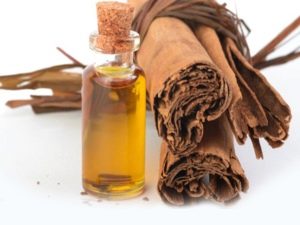
Cinnamomum zeylanicum is used to obtain the essential oil of cinnamon - Ceylon cinnamon or cinnamon tree.
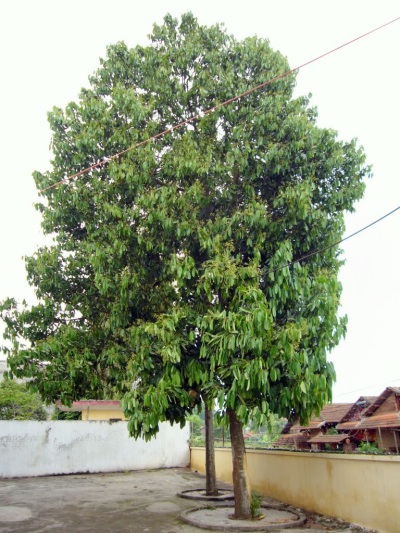
How to obtain
The oil is found in:
- bark,
- stems
- leaves;
- shoots.
Steam distillation is used to obtain cinnamon essential oil. Typically, the oil yield ends up being 0.2-0.7 percent.
Kinds
Cinnamon oil has different properties, qualities and effects depending on its source.
There are 2 main types of cinnamon tree oils:
- Derived from the bark.
- From leaves.

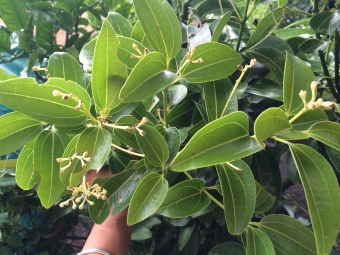
Bark oil properties:
- irritates the skin more strongly, therefore it is practically not used at home;
- costs more than from leaves;
- has the smell of cinnamon;
- contains more cinnamic aldehydes;
- more commonly used in dentistry, pharmacology and aromatherapy.
Properties of cinnamon leaf oil:
- does not irritate the skin as much as the aromatic oil obtained from the bark;
- has a smell of cloves;
- contains more eugenol - a substance used in pharmaceuticals, perfumery and other industries;
- costs less than bark.
Characteristics
- A warm, spicy and sweet scent with balsamic notes.
- Sharp, slightly bitter, rather spicy taste.
- The color of this aroma oil is orange, brown or yellow.
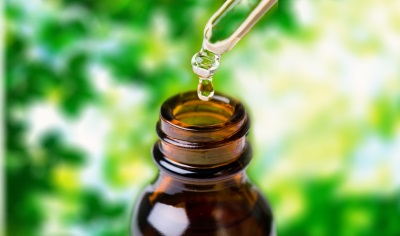
Chemical composition
Derived from the bark: up to 70% cinnamaldehyde, the remaining elements are other aldehydes, eugenol, camphene, furfural, limonene, linalool, cymene and others.
From leaves: 80-90% eugenol, other elements are represented by terpineol, geranyl, phellandrene, alcohols (sesquiterpene, cinnamon and others), cinnamic aldehyde, safrole, benzyl benzoate and other substances.
Beneficial features
- The smell of cinnamon helps to get rid of asthenia and depression.
- Hemostatic, antispasmodic and sedative effects are noted. This leads to the use of this aroma oil for medicinal purposes.
- Improves digestion, metabolism, and the menstrual cycle.
- Due to the warming effect, there is a property to stimulate sexual activity.
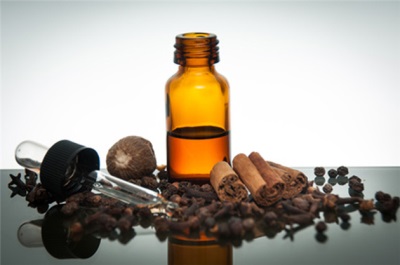
Harm
- Cinnamon essential oil is considered a strong allergen.
- High concentrations can cause skin irritation, redness and even burns.
- Cinnamon has the ability to raise blood pressure.
To reduce harm from exposure, before applying it to the skin, sensitivity should be checked and dosages should not be exceeded. It is also recommended to dilute it in base oil 1:5.
Contraindications
- Sensitive skin.
- Nervous exhaustion.
- Increased blood pressure.
- Epilepsy.
- Pregnancy.
Compatibility
Complimentary oils are the sources of which are:
- lemongrass,
- anise,
- orange and tangerine
- cardamom and nutmeg,
- ylang ylang,
- cedar,
- fennel and many more.
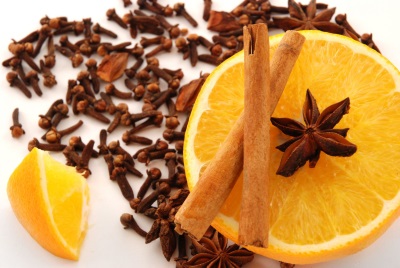
Application
Cinnamon essential oil is used in various industries due to its rich spectrum of activity.
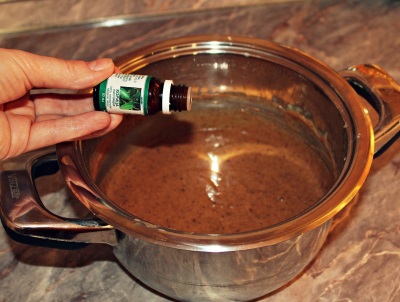
In medicine
It is used for such problems with the digestive system as bloating, constipation, nausea, poor appetite, food poisoning, intestinal parasites, weak secretion of gastric juice, colic.
Other healing effects of cinnamon essential oil:
- normalization of the heart;
- hemostatic action;
- improved blood circulation;
- counteracting colds and viral infectious diseases;
- improved metabolism;
- elimination of hemoptysis and cough;
- reduction of joint pain in rheumatic disease and arthritis;
- relaxation of muscles during overstrain;
- help with bites of wasps, as well as snakes;
- getting rid of lice or scabies;
- improvement of immunity.
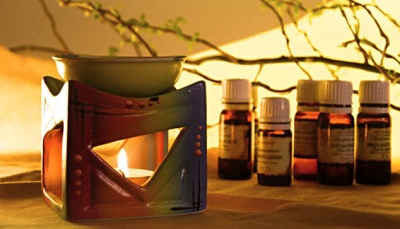
Also, its use is effective in fainting. It has a tonic effect on the nervous system and will help eliminate a hangover.
For colds, to improve blood flow and for pain in the joints, it is recommended to take aroma baths with cinnamon oil.
To eliminate mental stress, improve mood and strengthen immunity, it is enough to add only three to four drops of cinnamon oil to the aroma lamp.
In cooking
It is used in culinary business much less often than ground cinnamon or cinnamon in tubes.
It can complement:
- Baked goods, desserts and sweet drinks.
- Fish, poultry and beef.
- Wine, alcoholic cocktails, and coffee.
The use in cooking is due to properties such as increased appetite and improved digestion.
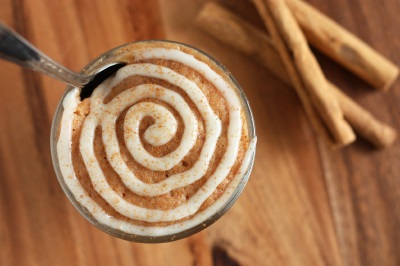
In cosmetology
Cinnamon essential oil as a cosmetic should be used carefully, especially if the patient's skin is sensitive.
The effect of this oil, used in cosmetology, is to:
- nutrition of the skin during aging;
- elimination of pallor;
- obstruction of a set of excess body weight;
- reduction of warts;
- help with scabies or fungal skin lesions.
A common recipe is to add one to two drops of oil to 10 ml of fatty oil/cream.
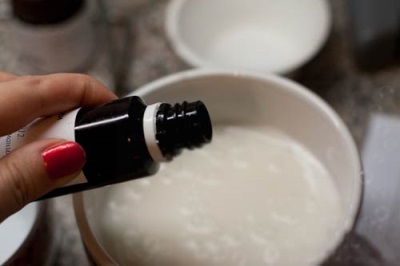
If it is used to eliminate a wart or inflammation on the skin, mix 5 drops. this aroma oil and 15 grams of base oil.
The following video talks about the properties of cinnamon essential oil.
Other applications
It is widely used in the production of cosmetics, as an aromatic component of "oriental" products. It is also added to mouthwashes and toothpaste, warming ointments and cough syrups.
aromatherapy
3-6 drops of cinnamon aroma oil are added to the aroma lamp with water. This amount is calculated for 15 m² of the room. If an aroma lamp is not available, it can be replaced with a cup of hot water. The duration of the procedure is up to half an hour.


















I love cinnamon oil! It smells so delicious! I often use it for aromatherapy. Now I will know that it is good to use it at a meeting with a loved one)))